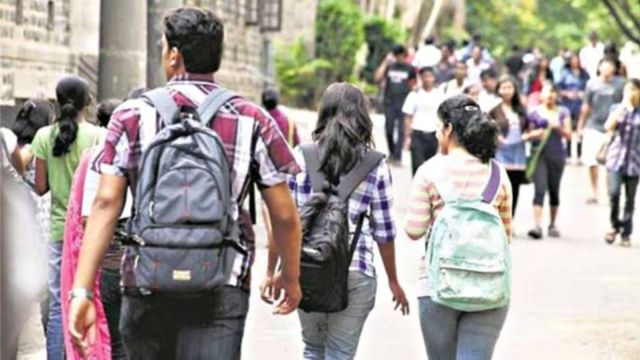Campus Talk | When students turn ‘apolitical’, Indian democracy loses one of its strongest voices
Resumes have taken precedence over character, turning many into rote learners with rotten sociopolitical awareness.
 From administrative rules to cafeteria prices, everything on a campus is political, yet students turn “apolitical” because our so-called national universities actively discourage campus politics.
From administrative rules to cafeteria prices, everything on a campus is political, yet students turn “apolitical” because our so-called national universities actively discourage campus politics.Written by Charvi
The buzz around the Delhi University Students’ Union (DUSU) elections is a timely reminder that student politics in India is alarmingly uneven. Traditional campuses like Delhi University (DU) celebrate fierce contests between the student wings of major parties (ABVP, NSUI, and SFI), but professional universities like IITs, IIMs, and NLUs offer little to no space for political engagement.
From administrative rules to cafeteria prices, everything on a campus is political, yet students turn “apolitical” because our so-called national universities actively discourage campus politics. Consequently, the political elite treat students as hollow “heads” rather than enlightened minds. Reversing this trend is essential if India aspires to cultivate leaders and conscious voters, not just degree-holders.
Shrinking student participation reflects democratic backsliding, with the broadening of the political elite coming at the cost of democracy. This exposes deeper cracks in the prevailing model of professional education.
First, the Macaulian system has reduced higher education to a transactional pursuit. Grades are traded for complacency. Students’ minimum threshold of aspiration has collapsed into a “settle for a good job” mindset.
Resumes have taken precedence over character, turning many into rote learners with rotten sociopolitical awareness.
Second, professional courses operate within rigid technocratic frameworks. Engineers are confined to engineering, lawyers to statutes, and doctors to prescriptions. Any engagement beyond the syllabus is dismissed as a “waste of time”. This atomistic model prevents students from critically connecting their expertise to society’s larger needs.
It produces engineers oblivious to the social costs of infrastructure, and doctors blind to public health policy.
But oblivion offers no protection. If students fail to appreciate their role in politics, they will remain spectators as a handful of leaders with a bagful of interests stroll down Kartavya Path.
Recent protests at medical colleges and IITs over women’s safety and mental health show that the flame for justice still burns in students. Yet they fear being used and discarded as pawns once the political elite reaps its benefits.
With the path to national politics blocked, many choose the “secure” route of civil services, while others erupt in protest or retreat into alienation. Meanwhile, what little student activism remains has shifted from social gatherings to social media. But activism cannot be virtual when the problems are real.
India, the Vishwaguru, must reclaim all its campuses as nurseries of democracy. Policy reforms should secure spaces for dialogue, and leaders who cut their teeth in campus politics must nurture the voices of the next generation. The goal is not token debates in youth parliaments but channels that carry student voices into the legislature itself.
The DUSU elections remind us that Indian students cannot afford to be apolitical. Their voice and vision are vital to the ongoing project of Indian democracy. Now, more than ever, India’s shishyas must blaze the trail for an aspirational and inclusive Viksit Bharat.
Charvi is a fifth-year student of law at Rajiv Gandhi National University of Law, Patiala.








